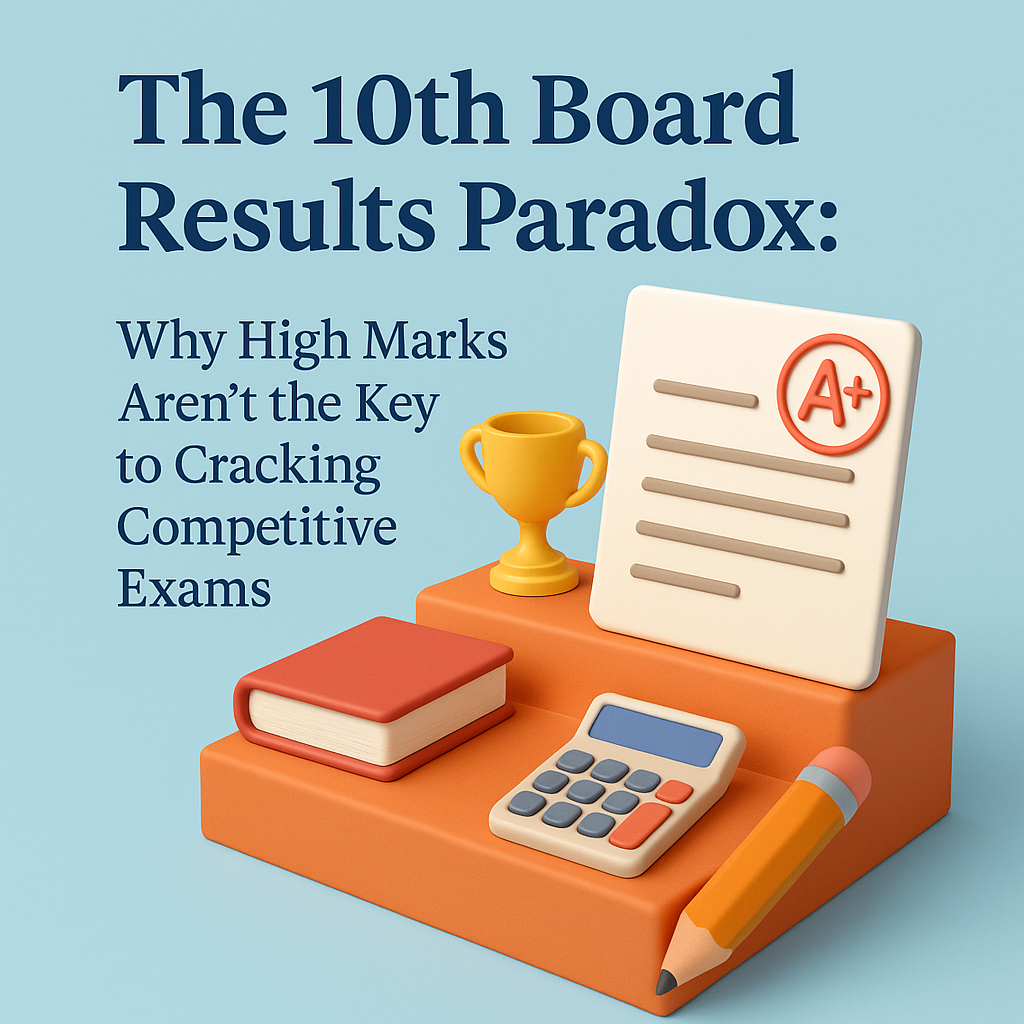
We’ve all been there—celebrating those high 10th board exam marks, thinking they’re the ultimate ticket to success in life. Parents beam with pride, students feel invincible, and coaching centers are quick to jump in with promises of JEE and NEET glory. But here’s the hard truth: those high board results might be giving students a false sense of confidence that could backfire when they face the real challenge—competitive exams.
As someone who’s worked with students in this very transition, I’ve seen this play out time and time again. The pressure to perform well in boards is high, and students often give their all to achieve top scores. But when they step into the world of JEE, NEET, or MHT-CET preparation, the reality hits. Suddenly, they’re overwhelmed by the difference in exam patterns, difficulty levels, and the need for entirely new skills.
The Strange Statistics: What’s Going On?
Let’s talk numbers for a second. The pass percentages in 10th board exams have been climbing year after year:
2023: The CBSE recorded an incredible 92.7% pass percentage, with 30% of students scoring above 90%. A significant chunk even crossed the 95% mark.
2024: We saw a similar trend, with 93.2% passing and 32% scoring over 90%.
2025: Early predictions suggest that more than 94% of students will pass, and 35% will score above 90%, with 20% hitting that prestigious 95%+ mark.
At first glance, these numbers seem like a win. But when we dig a little deeper, the question arises: How are so many students scoring so high?
Why Are These Marks Misleading?
Here’s the catch—while these results look impressive, they don’t always tell the whole story. The board exam system, with its focus on theoretical knowledge, memorization, and subjective assessments, doesn’t necessarily prepare students for the demands of competitive exams. In fact, it can often give students a false sense of security.
In competitive exams like JEE and NEET, students need to apply their knowledge in practical, time-bound situations. These exams focus on conceptual understanding, problem-solving, and speed—all areas that are not emphasized in board exams.
The Difference Between Board Exams and Competitive Exams
Board Exams: Memorization Over Application
Board exams largely focus on testing whether students can recall information and explain concepts in written form. There’s plenty of room for memorization. But in competitive exams, it’s all about how well you can apply that knowledge to solve problems quickly.Difficulty Level
Board exams, though not easy, generally don’t push students to think critically under pressure. Competitive exams, on the other hand, are designed to be challenging, requiring not just knowledge but also time management and quick thinking.Format of the Exam
Board exams often have subjective questions, allowing students to write essays or long-form answers. Competitive exams are heavily based on multiple-choice questions (MCQs), where every second counts, and each answer requires quick, precise thinking.Pressure
The pressure in board exams is different. You have time to think, plan, and correct mistakes. In competitive exams, you’re racing against the clock, where you need to solve problems in a fraction of the time you’d spend on a similar problem in school.
What’s the Role of Academies in All This?
Here’s the kicker: coaching academies often capitalize on the inflated board exam results. They sell the idea that scoring well in the 10th boards automatically means you’re ready for JEE or NEET. Unfortunately, this isn’t the case.
Many coaching centers focus on past-year papers and theoretical concepts, assuming students are ready to take on the big leagues based on their board performance. The reality? Competitive exams are about shifting gears. The preparation methods and focus areas are entirely different, and academies don’t always tell students that.
What Can Parents and Students Do?
Parents, it’s time to rethink how we measure success. Sure, board results are important, but they are not the end-all-be-all. Students need to adapt their study strategies to focus on problem-solving, critical thinking, and time management.
For students, it’s about reframing your approach to exams. Focus on building conceptual clarity, solving complex problems, and getting used to the pressure of competitive exams early on.
Key Steps to Take:
Don’t Rely Solely on Board Marks: Understand that board exams are just one step in the journey. They don’t guarantee success in competitive exams.
Start Early: Begin preparing for competitive exams from day one of 11th grade. Don’t wait until the last minute.
Focus on Problem-Solving: Competitive exams are all about applying your knowledge. Solve problems, take mock tests, and get used to the pressure of time-bound exams.
Stay Grounded: High marks are a good achievement, but they don’t define your future. The mindset shift from board exam preparation to competitive exam preparation is crucial for success.
Conclusion: The Big Question
So, here’s the million-dollar question: Are these inflated board exam results doing more harm than good? Are they setting students up for disappointment and stress when they enter the competitive exam race, expecting the same easy success?
The answer isn’t simple, but one thing’s for sure—the system needs to change. We can no longer let high board results set the stage for false confidence. It’s time to give students the right tools, mindset, and preparation for the real challenges that lie ahead.
Let’s shift the conversation from marks to skills—and prepare students for the future, not just the past.
#EducationReform #JEE #NEET #CompetitiveExams #BoardExams #StudentSuccess #Parenting #CoachingAcademies #ExamPrep